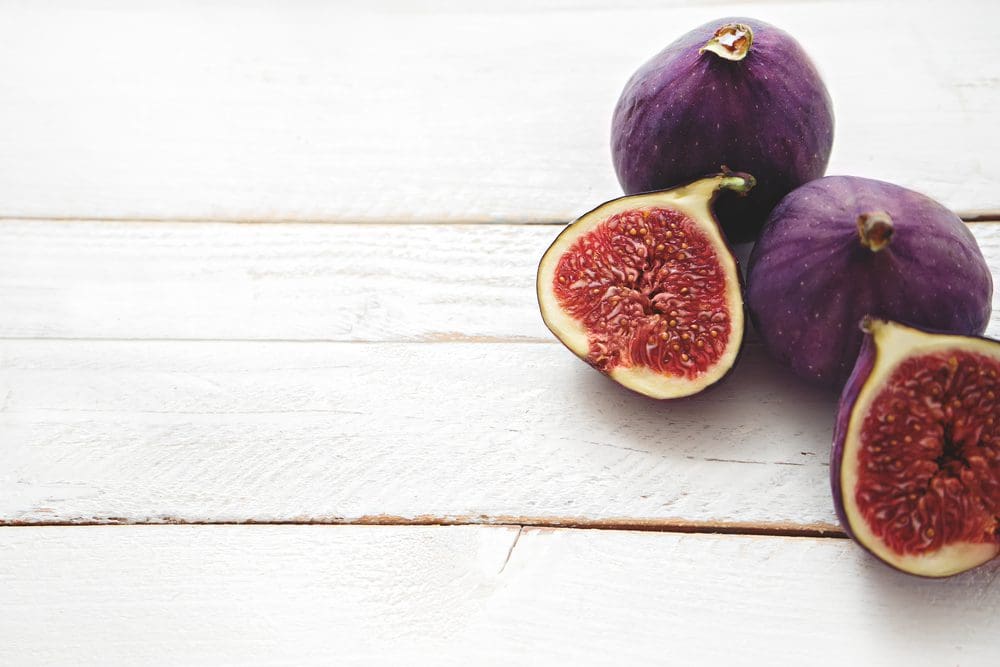Once upon a time, there were two baskets of figs. One basket was full of ripe, plump figs. The other basket had rotten ones.
The first basket of figs looked so good that it promised a whole summer of fresh fruit, more than you could eat, bursting with sweetness and chin-dribbling juiciness. The second basket was so rotten that no one would want to eat its fruit. The figs would have to be discarded.
Of Warnings and Mercy
God showed this picture to Jeremiah at a desperate time in the Jews’ history. He was delivering the kingdom of Judah to be captured by the Babylonians, after generations of rebellion. As one of God’s prophets, Jeremiah spent his life warning the Jews that this would happen if they kept turning away from God, but they refused to turn back. Now Jeremiah was watching the Babylonians carry away his rebellious countrymen one by one, back to Babylon.
God told Jeremiah this would not be the end, that his mercy would go further for his people, and that he would not allow evil to flourish. He explained that there would be good figs among his people—some who, under the weight of captivity, would see their sin, repent, and find God ready to restore them.
Three Ways God Shows Mercy
In God’s words to Jeremiah, we see three particular treasures of his mercy overflowing for those who once rejected him.
1. God looks mercifully at his people.
Like these good figs, so I will regard as good the exiles from Judah, whom I have sent away from place to the land of the Chaldeans. I will set my eyes on them for good. (Jeremiah 24:5-6)
Here God reveals his heart of mercy for his people. For sinners who had defied him for generations, he promises to set his eyes on them for good. He had sent prophets to warn them and call them back, and they mocked his prophets. He had provided for them, and they wanted to live without him, exalting their own work and worshiping other gods. He had protected and forgiven them, and they had forsaken him and flaunted their independence.
They were deeply sinful. Yet for this group of exiles, God set his eyes on them for good. His mercy overflowed far beyond their sin, and by his own will, he would see them as good.
2. God builds up his people.
I will bring them back to this land. I will build them up, and not tear them down; I will plant them, and not pluck them up. (v. 6)
The figs in this vision are placed before the temple as an offering, and these people are the good offering. God says he will plant them. He will grow them into the offering he desires. For years they had not been able to obey him, and their leaders had led them further away from the true God. But now God himself will tend to them and ensure they are built up strong and not torn down.
When God promises to bring his chosen ones to the land he has for them, notice he won’t put them through obstacles to win his favor. They won’t come back to a trap of punishment or an evaluation of strengths and weaknesses. He won’t be out to get them as soon as he saves them from exile. When God brings his chosen ones into his promise, his agenda is to plant them there firmly and not to weed them out.
3. God transforms his people.
I will give them a heart to know that I am the Lord and they shall be my people, and I will be their God, for they shall return to me with their whole heart (v. 7).
What an incredible promise this is: God will not only see his people as good and build them up to honor him, but he will to change their hearts so they know and turn to him. To turn to God with their whole hearts—it would’ve seemed like such a far-off reality, one these people could never accomplish on their own. But God’s mercy is so great that he doesn’t simply grant them a position in his good regard; he actually transforms them so they desire and follow him.
God also tells Jeremiah that he will abandon and destroy the rotten figs, those who had led his people astray and still refuse to put their trust in him. He will remove from his people those who stir them up against him.
God’s Mercy in the Gospel
What a beautiful picture of the gospel this is, deep in a book full of sorrow. Even in the bleakness of his people’s exile from home, after years of turning away from him in sin, God is pointing them to the day he will restore them by his hand, gather them back, and destroy the evil in their hearts.
These promises of God’s restoration are mirrored for those who trust in Christ, our righteousness, today:
From eternity, God has set his eyes for good on those are in Christ: Ephesians says “He chose us in him [Christ] before the creation of the world to be holy and blameless in His sight” (1:4, NASB). In Christ, we are holy and blameless; though we’ve turned away from God in our sin, he regards his chosen ones as good through Jesus’ righteousness.
In Christ we are “grow[ing] into a holy temple in the Lord” (Ephesians 2:21): God has gifted the church with leaders who teach and build up the saints to serve the Lord, as we grow up into maturity in him (Ephesians 4:11-14).
In Christ the barrier to knowing God is removed, the work of God is written on our hearts, and we are being transformed to desire him: “But when one turns to the Lord, the veil is removed. Now the Lord is the Spirit, and where the Spirit of the Lord is, there is freedom. And we all, with unveiled face, beholding the glory of the Lord, are being transformed into the same image from one degree of glory to another. For this comes from the Lord who is the Spirit” (2 Corinthians 3:16-18).
What Basket of Figs Are You?
Throughout the history of God’s relationship with his people, he has promised and provided redemption. In Jeremiah he promised to uphold his people in the darkness of their captivity. Living now after Christ has come, we experience promises of his redeeming power being fulfilled in us, from one degree of glory to another, until the day we experience the full fruit of his work in destroying sin and its effects.
This destruction is the story of the second basket of figs, the one that was so rotten it would have to be thrown out. These figs are not regarded as good. This basket is the leaders of Judah, who had led the people astray and killed God’s prophets, and those who refused to turn back to God. God has promised to crush evil and to cast away those who won’t turn to him.
Just as his first promise is coming true, so will this second. Out of kindness and patience, God warns and calls us to turn to him—if this is the call your heart needs, won’t you turn toward God’s promise of goodness and transformation, away from destruction?
But in Christ we rejoice in the security of God’s mercy. Though our sinful hearts oppose him, he transforms us to know and love him. This is his long-promised work, and what a good work it is!


